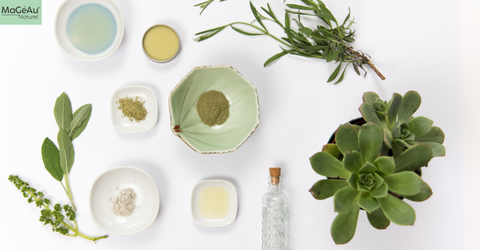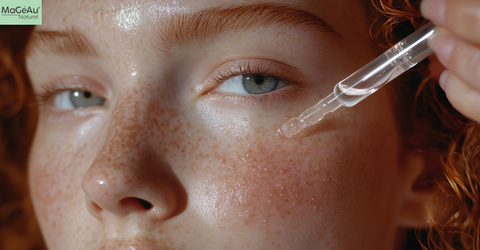You’ve probably made a conscious choice to buy products that are vegan, 100% natural, or carry eco-friendly skincare labels. These are undoubtedly reassuring and meaningful. The challenge comes with the term ‘cruelty-free,’ because unlike vegan or natural certifications, it isn’t always straightforward. A product can use the phrase yet still be linked to animal testing in certain circumstances.
Shocking? Yes. Rare? Not as much as you’d hope.
Let’s break down three common situations where products that seem cruelty-free might still have a hidden animal-testing footprint, and how you can avoid them.
1. The China Mainland Loophole
One of the biggest hidden traps comes from regulations in mainland China.
Here’s the reality: brands do not create different formulas for different regions. If a product is sold in China and requires animal testing, that same formula is effectively linked to animal testing everywhere.
In 2021, China introduced the Cosmetic Supervision and Administration Regulation (CSAR), which removed mandatory animal testing for many everyday products, such as shampoos, perfumes, and basic skincare, provided two conditions are met:
- The manufacturer can present a recognised GMP (Good Manufacturing Practice) certificate.
- A full safety assessment for the product is submitted.
But important exceptions still apply. Animal testing may still be required for:
- Special-use products (like sunscreens, skin-whitening creams, hair dyes, and anti-hair-loss treatments).
- Products for children.
- New ingredients under monitoring for up to three years.
- Products from companies placed under enhanced regulatory scrutiny.
On top of this, post-market testing is possible if authorities receive complaints or identify safety concerns, which means cruelty-free claims remain at risk.
What you need to know:
If a company sells in mainland China offline (in physical stores), animal testing might still be required.
Even big “cruelty-free” brands have been caught in this loophole because they want access to the market. Some choose to avoid selling in China altogether to maintain their cruelty-free status, while others enter the market and accept that animal testing may occur under the local regulations. In those cases, the products are no longer considered genuinely cruelty-free.
2. “Cruelty-Free” Parent Companies
Here’s a sneaky one: a product can be labelled cruelty-free if it wasn’t tested on animals itself, even if the parent company (the larger corporation that owns the brand) does test on animals for other products.
For example:
- A small skincare brand might avoid animal testing completely.
- But if they’re owned by a giant corporation that tests some other products on animals, your purchase might still indirectly fund animal testing.
✔ Why this matters:
If you want your money to only support ethical practices, you need to dig deeper than the label and check who owns the brand.
3. Ingredients Tested by Suppliers
Here’s the part most people don’t know:
Even if a brand says, We don’t test our products on animals some individual ingredients might still be tested by suppliers before the brand ever buys them.
This often happens with:
- Newly developed active ingredients.
- Certain preservatives or colourants.
- Ingredients that were tested years ago but are still being sold today.
Why It’s So Confusing for Consumers and How to Read Labels More Clearly
The biggest problem is that there’s no single, universal legal definition of “cruelty-free”. Companies can use the term loosely in marketing, as long as they technically meet their interpretation of the claim. That’s why one “cruelty-free” product can be completely ethical, while another is far from it.
You don’t have to spend hours researching every brand, here are some easy ways to stay on the right side of ethical skincare:
- Look for recognised cruelty-free certifications — like Leaping Bunny or Choose Cruelty Free.
- Check where the brand sells — avoid companies selling in countries with mandatory animal testing.
- Read their animal testing policy in detail — it should cover finished products, ingredients, and suppliers.
- Support vegan and sustainable skincare brands — these brands often have a higher ethical standard overall.
Our Ethical, Sustainable, and Truly Cruelty-Free Favourites
Switching to genuinely cruelty-free, vegan, and eco-friendly products doesn’t have to be complicated , it can actually feel like an upgrade for both your skin and your daily rituals. Here’s how an ethical routine could look:
◐ Start your morning gently.
Your skin has been resting all night, so treat it kindly with a Gentle Cleanser made with magnesium, vitamin E, and beetroot extract. It removes impurities without that tight, dry feeling.
◐ Turn your shower into a spa moment.
A Hydrating Shower Gel with grape seed oil, aloe vera, and turmeric hydrates while you cleanse, leaving your skin feeling refreshed and subtly glowing.
◐ Lock in moisture while your skin’s still damp.
Right after the shower, smooth on a Body Lotion enriched with Shea butter, aloe vera, and magnesium, your skin will drink it in, and you’ll stay soft all day.
◐ Show your hair some kindness.
Wash with a shampoo containing magnesium, vitamin E, grape seed oil, and aloe vera extract to nourish your scalp and strengthen your strands. Follow with a Conditioner infused with magnesium, vitamin E, and jojoba oil for silky, tangle-free hair.
◐ End the day with deep nourishment.
Before bed, massage in a lightweight Body Oil made from grape seed oil, magnesium, and vitamin E. It seals in hydration overnight and helps your skin repair itself while you sleep.
With each step, you’re not just caring for your skin, you’re making a choice that’s better for animals, the planet, and your long-term health.
All of these options are:
✔ Vegan – no animal-derived ingredients.
✔ Cruelty-Free – no animal testing at any stage.
✔ Eco-Friendly – made with sustainable skincare practices.
The Bottom Line
When it comes to buying cruelty-free, the label on the bottle is only part of the story.
By knowing about the China loophole, parent company testing, and supplier testing, you can make better choices that match your values.
Choosing products that are vegan, organic, and sustainable doesn’t just protect animals, it protects your skin from unnecessary chemicals and supports a cleaner planet.
Because true beauty doesn’t need cruelty.





Comments (0)
There are no comments for this article. Be the first one to leave a message!